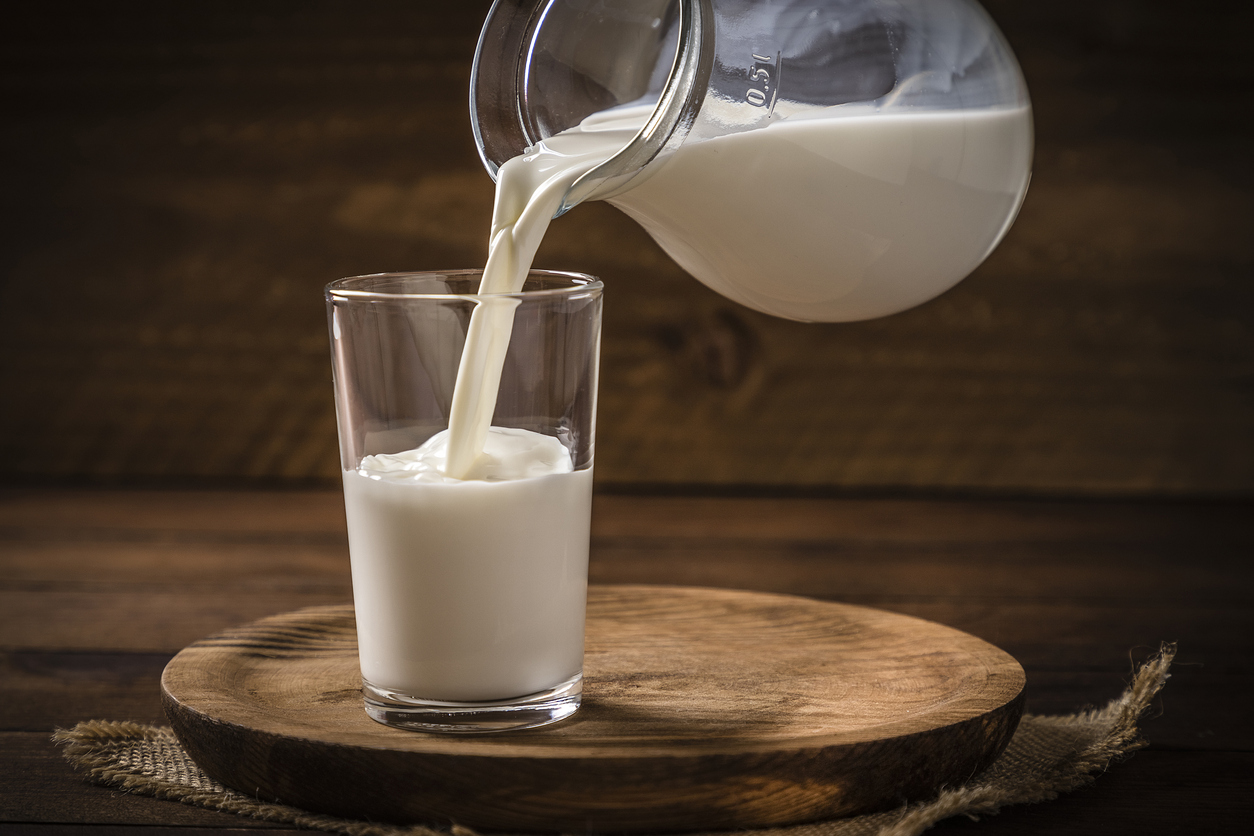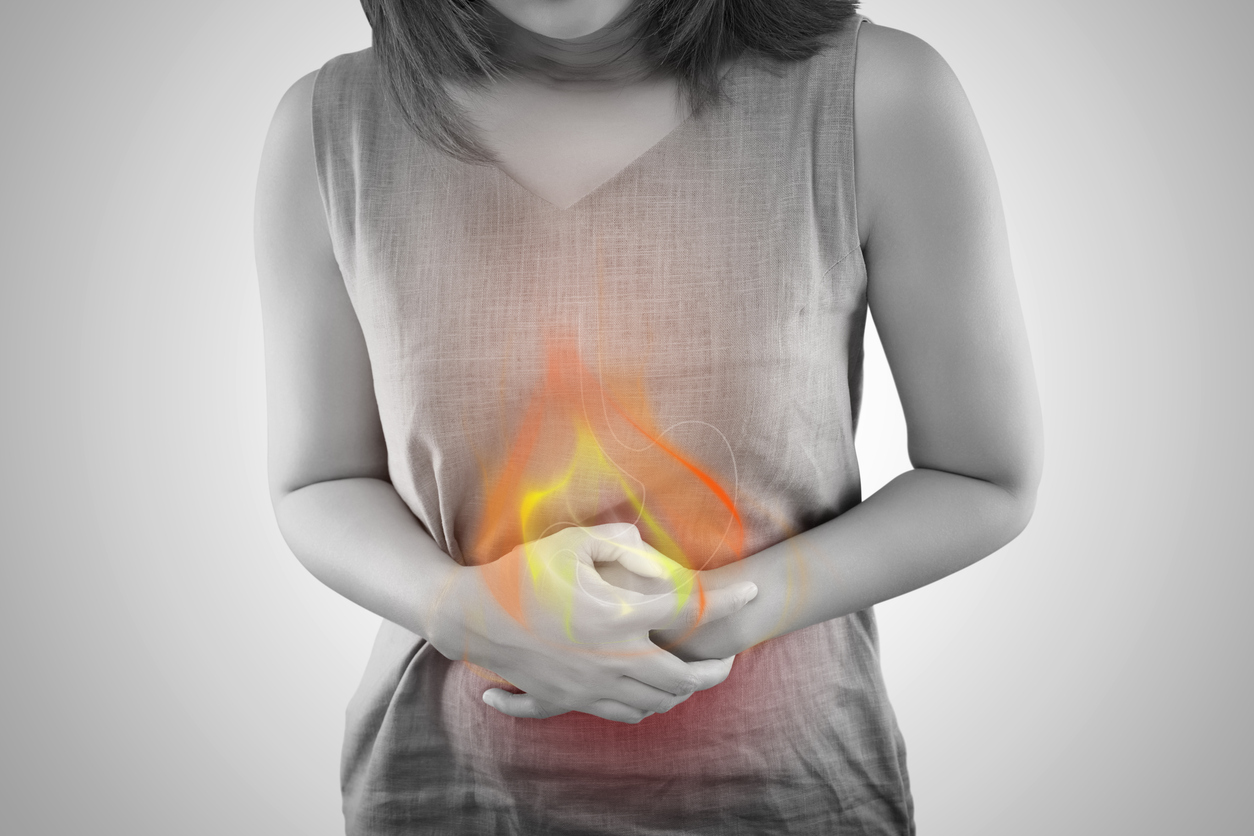Milk being one of the major sources of calcium in your body is an important ingredient in a balanced diet. But the question is whether milk is also good for women who are diagnosed with PCOS. In the case of women with PCOS, the ovaries produce more than the normal amount of male hormones called androgens, whereas it is present in very small amounts in women without PCOS. As a result, the ovaries are unable to release eggs (ovulation), which causes irregular menstrual cycles and several other symptoms.
Almost every PCOS expert and dietician advice women with PCOS to have a balanced diet is one of the best practices for women with PCOS. Despite that, it is believed that women with PCOS should limit their consumption of milk/dairy products. Some studies suggest that non-fat dairy products cause an increase in androgen and insulin levels, which is already in abundance in women with PCOS. Thus consuming too much milk can further aggravate the symptoms of PCOS and can instigate the growth of acne, another commonly seen issue in women with PCOS. Also, women with insulin resistance in PCOS have significantly lower levels of vitamin B12 as compared to women who do not experience insulin resistance. However, not every woman with PCOS needs to completely cut out milk or dairy from their diet.
The Truth About Milk and Polycystic Ovary Syndrome
Fertility
PCOS can lead to infertility which affects up to 40 percent of women with PCOS. Increased intake of low-fat dairy products like milk may enhance the chances you having this ovulation-related infertility. On the other hand, high-fat dairy was found to decrease this risk. Even though there is evidence that the results are not that straightforward, low-fat dairy products don’t need to harm your fertility or high-fat dairy will improve your fertility.
Acne
As mentioned before consuming dairy products may worsen your acne, which is another common symptom of PCOS that affects up to 30% of women with PCOS. While there are some studies that report an increased frequency of acne with only low-fat and fat-free milk products, other studies report that all types of dairy increased acne occurrence.
Digestive Symptoms
Lactose intolerance is fairly common in people these days and especially in women with PCOS so much so that up to 70 percent of the world population may have some form of lactose intolerance. Lactose intolerance is when your body does not agree to digest lactose, which is the main sugar found in milk products, and results in causing gas, bloating, and/or diarrohea. Women with PCOS are more likely to have leaky gut and dysbiosis than women without PCOS as they have more food sensitivities and their ur immune system overreacts to a particular food which can trigger inflammation. We find that many individuals with PCOS tend to have a sensitivity to dairy as well. Temporarily eliminating food sensitivities as part of a gut healing protocol can reduce inflammation, treat leaky gut, and rebalance gut bacteria.
What Are the Benefits of Drinking Milk?
1. Impact On Fertility
Just like its effects on insulin sensitivity, there has been a lot of research on the influence of dairy on female fertility and the results have varied significantly. One large study found that each daily serving of low-fat milk products increased the risk of ovulatory infertility by 11%, but adding one serving of whole milk reduced the risk by 50%. This difference has been attributed to high-fat milk having less impact on raising insulin-like growth factor 1 level.
2. Maintains Bone Density
Children are often advised by their pediatricians to be given milk at least once a day. This is because milk is an excellent source of calcium and phosphorus which are necessary for the development and maintenance of strong, healthy bones and teeth. These reduce the risk of osteoporosis and bone fractures later in life. Milk is a major promoter of bone health. Drinking milk is a good way to get your calcium fix but the benefits of milk don’t stop there. Milk also provides protein, fortified vitamins and more.
3. Contains B Vitamins
Milk is rich in vitamin B12, riboflavin (vitamin B2) and niacin (vitamin B3) which aid the conversion of food into energy. Vitamin B12 is also needed for the formation of red blood cells and the normal functioning of the central nervous system.
4. Fortified with Other Nutrients
Other nutrients including vitamins A and D are usually added to milk. Vitamin A is key for good vision and boosts the immune system, while vitamin D improves the body’s ability to absorb calcium.
Should You Avoid Dairy If You Have PCOS?
Hate to give up your cheese entirely? You may not need to. No randomized controlled trials have examined the relationship between milk, cheese, or dairy consumption and acne. Most of the studies conducted have relied on self-reported dairy intake and focused on milk, not cheese or other dairy sources. The evidence so far points to fat-free and low-fat dairy as the most influential factors in women with PCOS.
There aren’t any formal guidelines as to how much dairy consumption to have or if it’s necessary to completely avoid dairy if you have acne or PCOS. In one study, the risk of acne increased when 3 or more servings of milk were consumed. Because of the direct influence on androgens and insulin, women with PCOS (who have acne or not) should limit their dairy intake to 2 or fewer servings each day and go for the full-fat versions.
Each person reacts to dairy differently. So if you feel dairy breaks you out or causes stomach issues – avoid it. There are plenty of non-dairy alternatives that are fortified with calcium.
What Are the Benefits of Going Dairy-Free?
Reduce Bloating Caused by Excess Gas
Experiencing lactose malabsorption causes bloating, as the fermentation process of lactose sugars that we can’t absorb produces excess gas within the colon. It’s these excess gasses that cause our bloated appearance, and the level of digestive discomfort that accompanies it.
Reduce Inflammatory Responses
Studies have determined that around 80% of our immune activity occurs around the gut and our digestive systems. Dairy has also been identified as one of the biggest immune system stressors. When we ingest foods we’re intolerant to, as we cannot produce the enzymes to absorb them, the immune system senses this and tries to flush out the offending ingredient. The immune system consists of a whole network of potential responses, from external symptoms to internal gastro-logical distress. Often, these autoimmune networks become overloaded and respond to the wrong area of the body. This can cause adverse reactions in unexpected ways.
Learn More With Veera
At Veera, we customise your diet plan to fit your lifestyle and symptoms. Our PCOS experts work closely with you to develop a plan that is personalised and takes care of your diet, exercise, sleep and stress. Book a free appointment with our experts to get started!


















